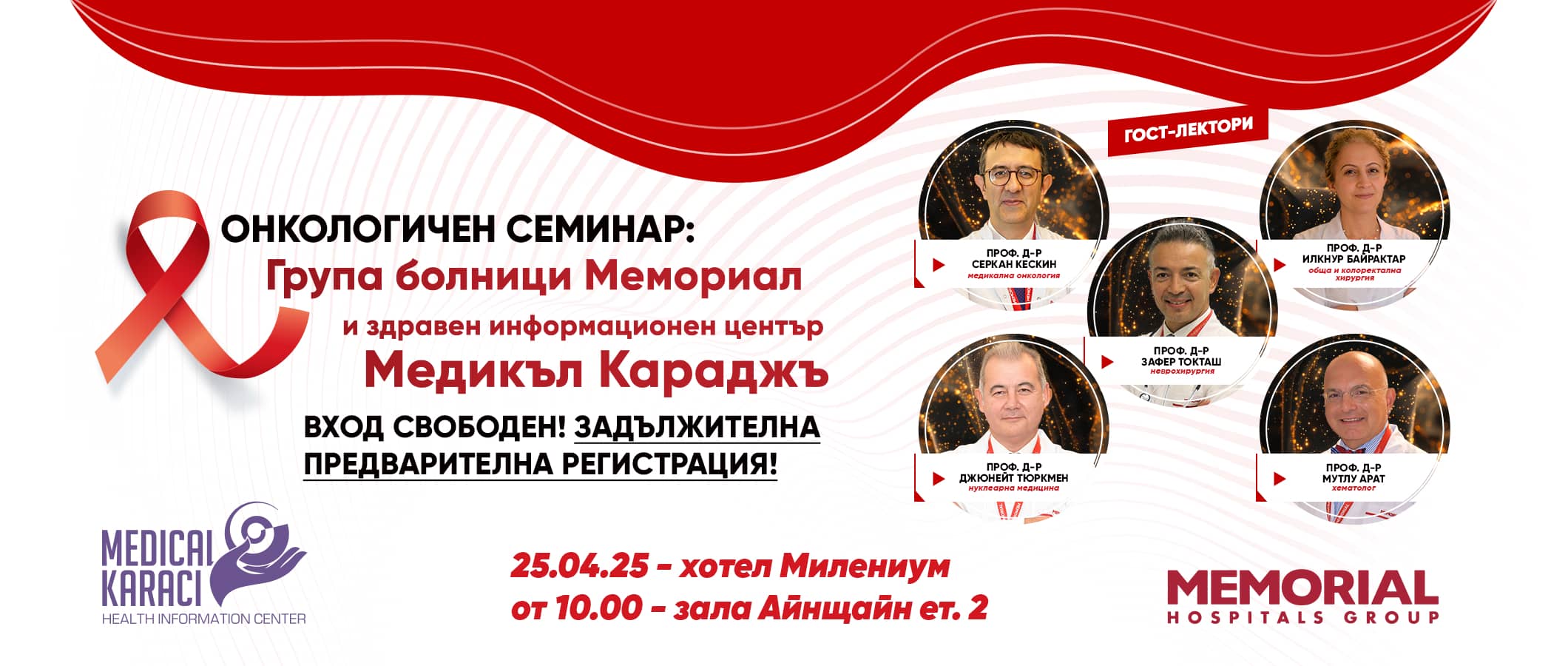A modern and effective method for the diagnosis and treatment of prostate tumor is the use of radionuclide therapy with the radioisotope Lutenium-177.
The therapy is used in patients in the last stage of the disease and acts on the activity, spread of the tumor and reduces its size. It is used in case of treatment failure and to limit metastatic processes.
All prostate cancers have increased expression of a specific prostate membrane antigen, glycoprotein 2 - PSMA. It is used to track the effect of treatment and monitor the development of prostate cancer. When treatment is successful, the PSA level decreases, and when the disease recurs, it increases.
The basic principle of radionuclide therapy is to administer the maximum effective dose that does not cause serious toxicity in order to obtain an effective antitumour effect. For this purpose, the amount of radiation dose to be administered to the target organ is calculated. Dosimetry is mandatory at the initiation of treatment.
A study was conducted in which 7 patients were enrolled
- all diagnosed with prostate cancer. Their average age was 71.
Two of them had prostate surgery and the other 5 had radiation therapy. All patients had chemotherapy treatment and had rising PSA levels in the blood despite treatment.
After administration of radionuclide therapy with the radioisotope Lutenium-177, urine and blood samples showed a single peak of radioactivity, even 24 h after injection. This proves the potent action only on the targeted tumor tissue with minimal influence on healthy tissues in the body. In order to be precise dosimetry and purity of the isotope action, post-therapy dosimetry based on computer positron emission tomography is performed. This determines the radiopharmaceutical uptake at the lesion site. Patients were followed up for 24 h after prolonged infusion of radiopharmaceutical within 15 min. No acute side effect was observed and all patients tolerated the procedure very well. No change in blood pressure, heart rate or body temperature was observed. Mild side effects may occur in the salivary glands or small intestine during treatment, moving to the malignant target cells. They manifest with abdominal pain, nausea, vomiting and very rarely - hair loss.
Lutenium is reported to be toxic to the bone marrow and kidneys and yet patients' quality of life improves significantly after treatment. A significant effect is seen in the reduction of pain originating from the tumor.
How-does it work?
PSMA receptors are found in prostate cancer cells and more distant metastases. These receptors interact with molecules of the same name by binding in a network. Radioactive lutetium-177 can bind to the PSMA molecule. The molecule thus takes it to the receptors it will bind to, and the radioisotope delivers its radiation to the tumor cell and thus destroys it. This allows for greater protection of the body from total radiation compared to other methods.
In addition to pain reduction and tumor size reduction, some patients report prolonged remission after treatment with Lu-177.
In which cases can it still be applied?
Lutetium therapy is also applied to neuroendocrine tumors. Peptide receptor radionuclide therapy (PRRT) is applied.
Neuroendocrine tumors are usually found in the stomach, intestines or respiratory tract. Symptoms can be relieved by activating receptors, in particular somatoreceptors. Radioisotope has the ability to activate receptors, which was recognized and approved as a methodology by the FDA in 2018.
It is recommended for patients with sensitive somatoreceptors whose bone marrow and kidneys are healthy, due to the toxicity on them that we mentioned earlier. Before injecting the substance, like the somatostatin hormone, it binds to Lu-177. Entering the body, the molecular complex attacks the cancer cells, which leak the radioactive isotope along with the somatostatin molecule.
American oncologist Johnath Strossberg found that the therapy increased survival by about 3 years in about 60% of patients with end-stage colon cancer. In more than half of prostate cancer patients, the tumor size decreased by almost half after therapy, and life expectancy in people with neuroendocrine tumors increased by 50%.For more information, we at Medical Carragee are at your service.
Call us on the following numbers "Medical Karaj": 0879 977 401 or 0879 977 402.
Also keep an eye on our constantly updated Facebook content.









